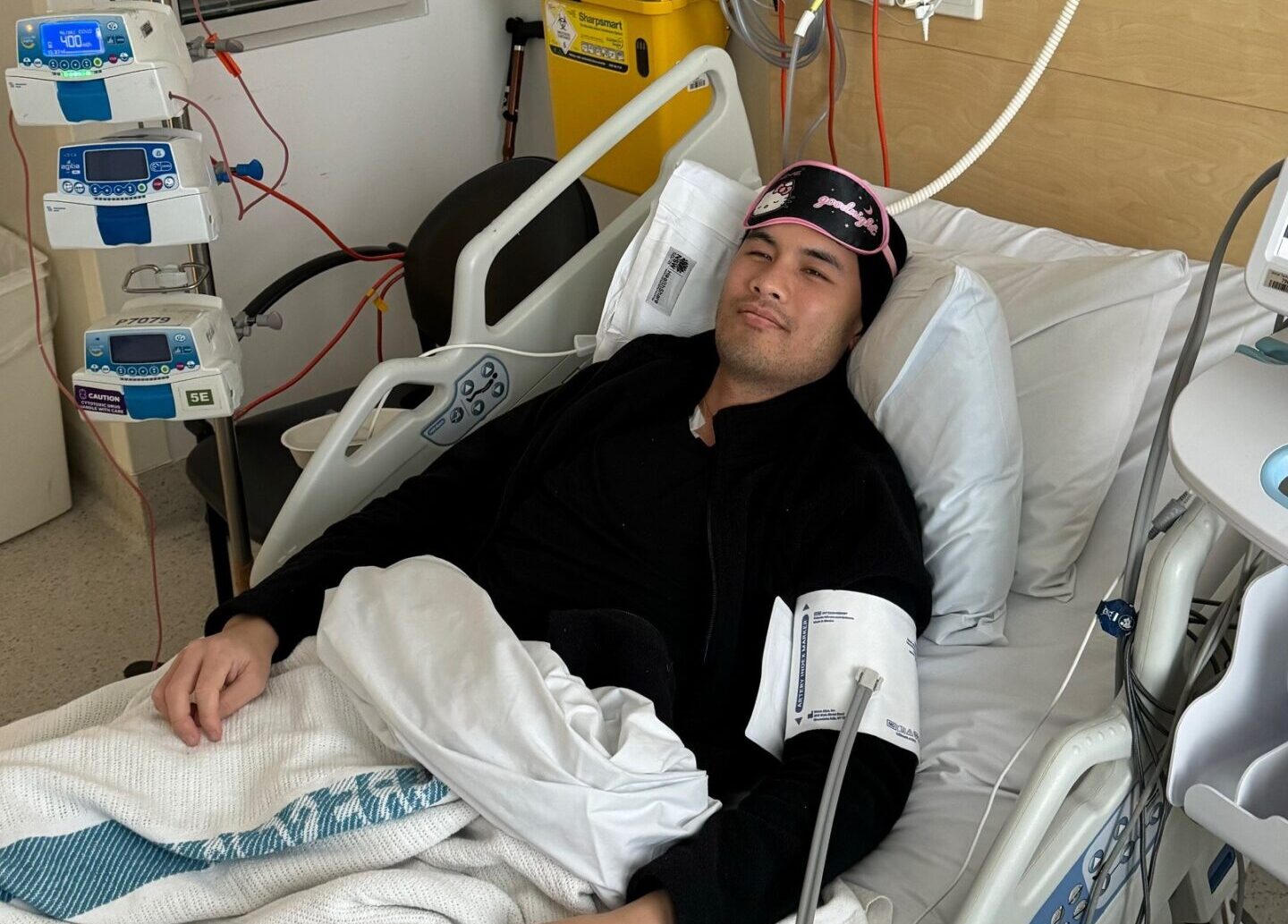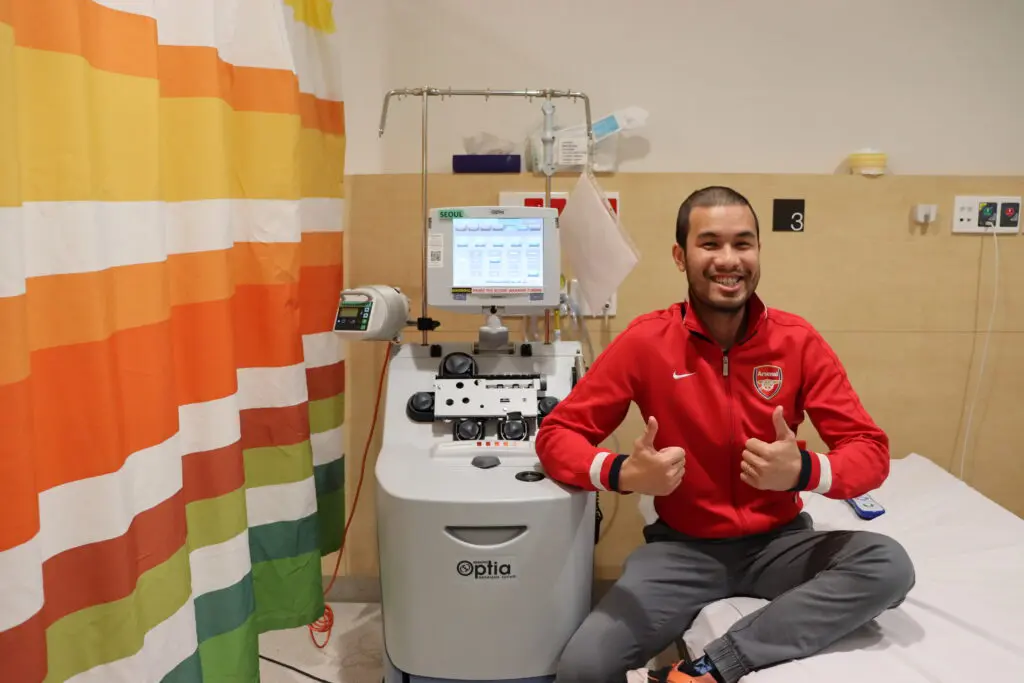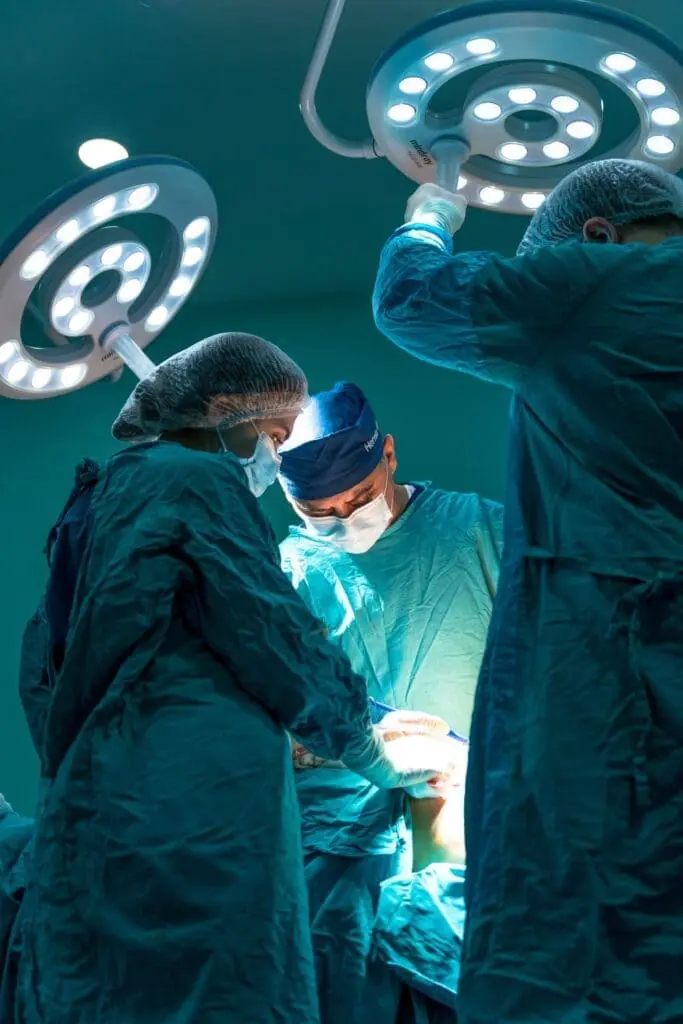
More than a decade ago, Sam was in the prime of his life. At 21, he trained daily to become a professional football player. But when he began to experience recurring migraines and weakness on the left side of his body, he didn’t realise that these were the early symptoms of multiple sclerosis (MS), a condition that would gradually become a significant part of his life and impact his mental health.
The devastating diagnosis of MS impacted his mental health
Two years later, Sam woke up one morning, unable to feel his legs. After a very stressful hour, he regained feeling and decided to make an appointment with his GP. Sam was referred to a neurologist, but after several tests and scans, there was still no clear explanation for the numbness he was experiencing.
Within a year, Sam experienced recurring muscle spasms and tingling on his left side, leading to a referral to neurologist Dr John Parratt at Royal North Shore Hospital (RNSH), a specialist in inflammatory diseases of the nervous system. Following a series of tests, Dr Parratt concluded that Sam had multiple sclerosis (MS).
MS is a chronic inflammatory disease where the immune system attacks the protective covering of nerve fibers, leading to fatigue, weakness, vision issues, numbness and loss of balance.
Sam was devastated by the diagnosis. He gave up his football dream, sold his motorbike and eventually made the difficult decision to close the family’s Vietnamese restaurant. One of his biggest worries was telling his girlfriend, Sophie, as they hadn’t been together for long.
Sam’s mental health began to decline as the disease advanced. Dr Parratt started Sam on an immunosuppressant infusion every six months, which initially helped stabilise his condition.
More than 2.8 million people live with MS worldwide. In addition to the physical challenges, research shows that up to 50% of people with MS experience depression, while anxiety is twice as common compared to the general population.


New hope through a stem cell transplant
By early 2024, Sam’s symptoms had worsened rapidly – he was dragging his left leg and had started using a walking stick.
Feeling physically and mentally drained after eight years of living with MS, he spoke with Dr Parratt who recommended a haematopoietic stem cell transplant (HSCT) which gave Sam a renewed sense of hope.
HSCT aims to reset the immune system to reduce its attacks on the nervous system. Under the care of haematologist Professor Ian Kerridge, Sam had his stem cells collected through apheresis, then underwent a week of intensive chemotherapy to reset his immune system. His stem cells were then reintroduced to help rebuild them.
“Autoimmune degenerative diseases don’t discriminate,” shared Nonie Ferrer, an apheresis clinical nurse consultant that works with Professor Kerridge. “As nurses, we see firsthand how important effective symptom management is. Our role goes beyond physical care – we’re also here to support patients emotionally. That holistic approach can make a real difference in their quality of life.”
A brighter future
Sam recalls the treatment as being incredibly uncomfortable; however, he praises the nursing staff for their encouragement. After three weeks at RNSH, he was euphoric as he could see an improvement.
“It was one of the toughest things I’ve ever done,” Sam says. “But the nurses were so supportive and kept me going.”
Within months, Sam was walking unaided. While he still experiences some numbness in his left hand and spasms in his left leg, the symptoms were not as debilitating as they once were, and he felt hopeful.
“It was a grueling three weeks, but I’m proof that it works,” said Sam. “I’ve never felt better.”
Before the stem cell transplant, Sam couldn’t find a way to be positive as his future felt uncertain. But when he was able to walk again, he saw the light on the other side of the tunnel.
Today, Sam has bought a new motorbike, and while he would like to get back on the football field, he’s content to help train his local football team until he’s fully recovered. The exercise, he says, has helped his mental health enormously.
Sophie remained deeply committed to their relationship, providing Sam with a steady source of strength. They married in 2022 and are now considering starting a family – something Sam never thought possible given his condition.
Sam credits his recovery to the world-class care he received at Royal North Shore Hospital and the groundbreaking research that made his treatment possible.
Sam’s story is not just one of struggle – it’s one of resilience and a powerful reminder of why mental health support is essential for people living with chronic illness.
If you want to support life-changing healthcare and medical research, please donate to the NORTH Foundation today.
